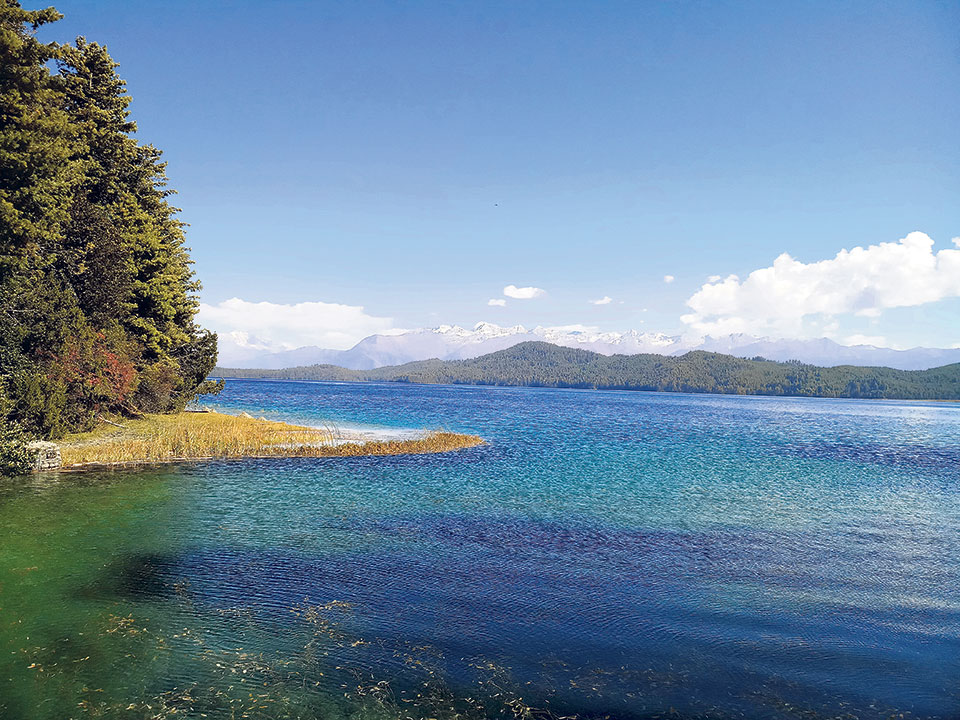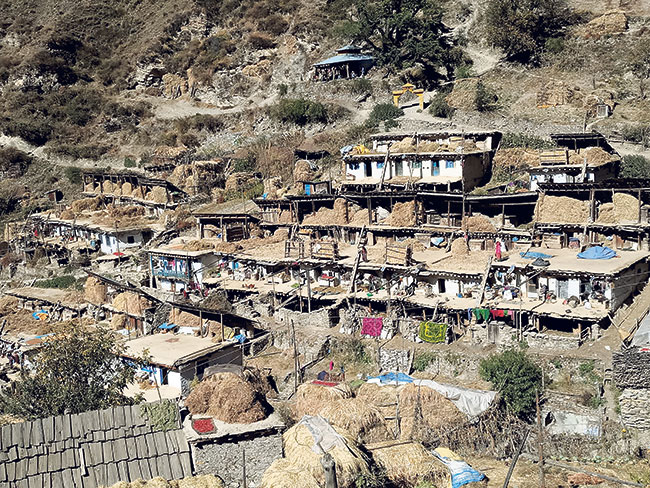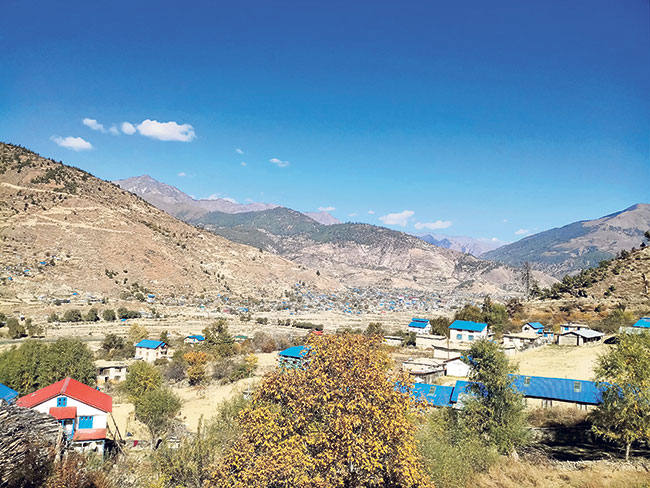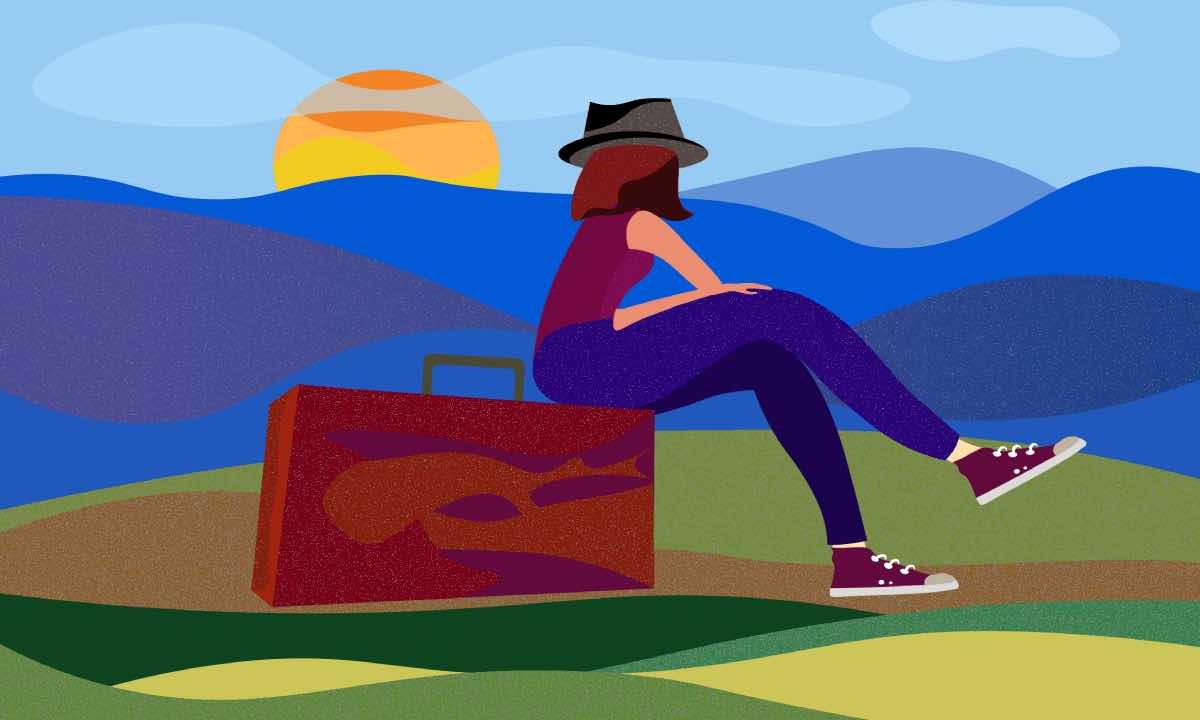
OR
Travel

A girl from the east spends a month in the west
In October 2017, armed with a sleeping bag, a medical kit, a pair of sandals, two trousers and three t-shirts in her travel bag and a map in her hand, 24-year-old Melina Rai was all set to trek from Khaptad National Park to Rara. The best thing, she says, was that she was going alone. She confesses that she lacked a proper plan but was determined to explore and enjoy the far western region of Nepal.
Rai was born and brought up on the eastern side of Nepal. This had always made her curious about how people on the western side lived their lives and the kind of culture they followed. Reading about it and watching documentaries on it weren’t enough. She wanted to see it firsthand.
“I made many plans with friends to go explore the western side of Nepal but nothing every worked out. After many plans failed to materialize, I decided to travel alone,” says Rai adding that it was the reason why she applied for the Solo Women Travel Challenge in 2017. Rai says that she had no hopes whatsoever of getting selected. Fortunately, fate had other plans and she made it through all the selection processes. Here she talks about how her first-ever solo traveling experience shaped her, shares a memory that continues to haunt her, and leaves us contemplating about our own lives.
In the beginning, I was excited, scared, and nervous all at the same time.
I was very excited the day I received my approval letter from the Solo Women Travel Challenge. But once I got over the initial excitement, I was quite a bit troubled. I found myself wondering whether I would be able to complete the challenge and thinking about all the unpleasant things that could happen to a woman traveling alone. I couldn’t sleep at all that night. But the next day, despite all the worries, I took a bus from Kathmandu to Khaptad via Dhangadi. Once I was off the bus and got started on the trek, all these questions fell off my mind and I was ready to hit the road.
The people along the way were really nice. They didn’t let me feel alone.
It’s amazing how strangers can come to your aid and cheer you up along the way as you travel in Nepal. Unlike those who live in the city, I found people at villages to be extremely helpful and generous. There was a language barrier between us and I had to communicate using hand gestures most of the times, but even then they would never be annoyed. They were patient and would help out in any way they could. Also, many locals walked with me for hours when I asked them for directions. When I inquired about the nearest hotel, they would actually open up their homes to me. An old woman took me to her house, fed me lunch, and then packed snacks for me as well. She found me as I was searching for a shop where I could rest and get something to eat. Another woman gave me her tiffin after she found out that I was traveling alone and hadn’t eaten for the entire day that particular day. The people and their warm hospitality didn’t make me feel alone, and the entire trip was a lot easier because of them.
 Pretty sights would soothe me every now and then.
Pretty sights would soothe me every now and then.
After I reached Rara, I wanted to go to Badimalika as well. This is a little place on a very remote part of Jumla and many people don’t know about it. It was almost dark when I finally reached this place and I was in hurry to find a hotel. While asking for directions, a villager offered that I stay at his house instead. When I finally reached his home, I was exhausted. We had to climb a hill to get there. But you wouldn’t believe the view from there. Since it was dark, and all the houses had at least one light on, the whole village lit up like a starry night. Also, at Badimalika, nobody lived on the ground floor because of heavy snowfall in winter. That also really intrigued me.
There’s a memory that comes back to haunt me.
Somewhere in the middle of my journey, I encountered a village where they still follow the ‘chaupadi’ system. Though I had been hearing and reading a lot about the ills of this tradition for a while, actually seeing it made me reel in shock. Also, I had had my periods on the same night and I didn’t want anyone to find out because I was afraid I too would be sent to the cowshed. As I was leaving, the next day, I felt really guilty about keeping the villagers in the dark and, in a way, disrespecting them. But I also felt helpless for not being able to stand up for those poor little girls who were being forced to follow the ‘chaupadi’ system.
My encounter with the police didn’t make me feel safe.
The trip was like a rainbow of emotions for me. There were both good and bad times. There was this one time when I was resting at a temple above a hill and suddenly a policeman approached me and asked for my details. I answered all his questions honestly and then he asked me to come to the police station with him. I had my periods and I really wanted to use a proper toilet that the village didn’t seem to have so I decided to follow him. At the station, I was surprised to see that there were no women there. I wanted to leave but they kept insisting that I spend the night at the police station. I’m still not sure what their intentions were but I was very uncomfortable and kept insisting that I wanted to leave. After making up several excuses and promising them that I’d be back, I finally left. I literally ran to my room and later informed them that I wouldn’t be returning, as I wasn’t feeling very well. I left the next morning but I kept receiving phone calls from those police officers. It was very annoying and scary too. I actually had to block their phone numbers and even switch off my phone at times.
Happiness is all that matters – that’s the most important lesson I learned on this trip.
Before I went on this trip, happiness was a vague concept. It was also a need for all kinds of things – money, luxury, and recognition, to name a few that comes to mind. We are so used to comparing our lives with that of others on Facebook and Instagram that we always need constant validation and it doesn’t take much for us to be sad, jealous, or upset. But it needn’t be that way. We can simply choose to be happy. At the villages, children play with marbles. People work in the fields and grow fresh food. They celebrate festivals in their cultural attire and enjoy among themselves. They aren’t trying to outdo one another or boast about who has what or who has more. They taught me that you needn’t look beyond yourself to find happiness, all you need to do is learn to make the most of what you have.

You May Like This

Israeli settlers provoke Palestinians in East Jerusalem, West Bank
JORDAN, July 22: Provocations by Israeli settlers in occupied Palestine happened days after Israel approved the nationality bill, which reiterates... Read More...

West Brom humbled West Ham at the Hawthorns
WEST BROMWICH, Sept 17: West Bromwich Albion handed West Ham a third straight loss in the English Premier League by... Read More...

Government: 7 killed in explosion at east China kindergarten
BEIJING, June 15: Seven people were killed and 59 injured in an explosion Thursday at the front gate of a... Read More...








Just In
- Customs revenue collection surpasses target at Tatopani border, Falls behind at Rasuwagadhi border in Q3
- Rain shocks: On the monsoon in 2024
- Govt receives 1,658 proposals for startup loans; Minimum of 50 points required for eligibility
- Unified Socialist leader Sodari appointed Sudurpaschim CM
- One Nepali dies in UAE flood
- Madhesh Province CM Yadav expands cabinet
- 12-hour OPD service at Damauli Hospital from Thursday
- Lawmaker Dr Sharma provides Rs 2 million to children's hospital











Leave A Comment